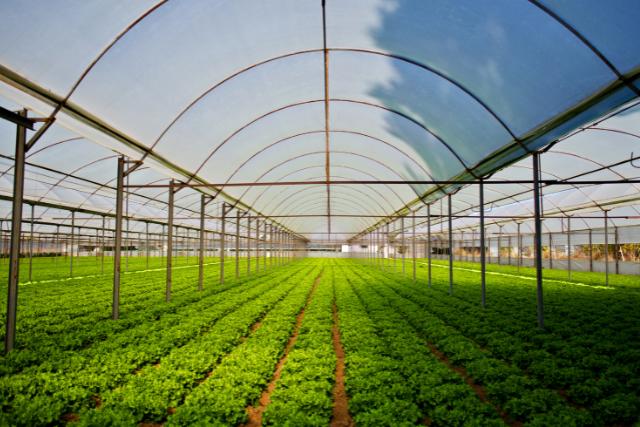Recent Posts
-

- Diabetes-Friendly Nutrition: Smart... 08.12.2024
-

- Nutrition for Chronic... 08.12.2024
-

- Anti-Inflammatory Diet: Food... 08.12.2024
-

- Low-Sodium and Heart-Healthy:... 08.12.2024
-

- Plant-Based Diets for... 08.12.2024
Importance of Organic Vegetable Gardening

There is a job waiting for you here. Tell us whether any fruits or vegetables are growing in the garden or backyard that belongs to your family by going there and telling us about it. If so, what varieties exist, and who was responsible for planting these fruits and vegetables? If there aren't any, reading this page will inspire you to begin cultivating your food.
Organic gardening may be simplified to imply gardening without using chemicals humans manufacture. Those who grow organically depend, rather than on artificial components, on components that are found in nature and designed to operate in tandem with the inherent benefits that accrue from having healthy and productive soil.
There are several different degrees of organic gardening. Many home gardeners may focus on nourishing their soil and plants with organic and natural-based products that avoid chemical residues in their food and the environment. On the other hand, commercial market gardeners must meet stringent guidelines to produce and process certified-organic foods.
With the expanding population, it is crucial to seek solutions on how to have greens in your houses and how to have your garden full of nutrition from what you've grown. This is particularly important in urban places. Let's look at the significance of boosting your organic vegetables, shall we?
To Satisfy the Appetite.
Even though many organic fruits and vegetables will not have the uniform appearance of those you purchase in a supermarket, they will have a superior taste. This virtually explosive flavor bears little resemblance to the taste of commercially raised produce. This is because organic produce is grown in a more natural environment than commercially raised produce.
There is no comparison in flavor to eating fresh fruits or vegetables plucked directly from the plant, tree, or vine. You may have a taste of fruits and vegetables that don't need to be cooked right there in the garden if they aren't sensitive to heat.
In the Interest of Health.
Because the produce from an organic garden is not exposed to any harmful chemicals, there is no cost associated with purchasing it. Your fruits and vegetables would not have any chemical residue on them, which would be ingested by your body if they were not thoroughly removed before consumption. It has been shown that the vitamin and mineral content is much greater than conventionally cultivated fruit that was grown using chemical fertilizers, pesticides, and herbicides.
By cultivating your organic garden, you can ensure that you and your family can access the freshest and most delicious fruits and vegetables. While you labor in your garden, from when you plant the seeds to when you bring in the harvest, you will get plenty of exercises to help you tone your body and burn off any excess calories.
To Save Some Cash.
The best way to save money on organic vegetables is to grow them in your yard. It is something that all of us are interested in doing. Compared to conventional supermarkets, the prices of organic produce purchased from farmer's markets and health food shops may be up to and even over fifty percent more.
If you cultivate your food, not only will you save money at the grocery shop, but in this day and age of increasing gas prices, you also won't have to make as many visits to the grocery store to buy perishable items. If you preserve the extra, you can make your garden produce well into the fall and winter months without having to resort to purchasing "greenhouse" veggies from a retail outlet.
Regarding the Religious.
Ask any gardener, but mainly an organic gardener, what they are thinking about while working in their garden, whether it be tilling the soil, sowing seeds, or picking weeds. A response along these lines is likely to be given in answer to your question: "being in the garden brings me closer to nature," "working in the soil and seeing the garden develop makes me feel like I am part of something greater," "it's contemplative," and "my time of prayer."
In the Interest of the Environment.
Since organic gardeners do not use chemical pesticides, herbicides, or fertilizers, these chemicals can't seep into the groundwater or run off and enter drinking water. Since there is no chemical runoff, beneficial insects, birds, and other tiny creatures do not get hurt, which is another advantage of this situation.
There is less loss of topsoil, leading to general erosion, which may harm a whole region since organic gardeners regularly add organic matter to their soil to build it up. You are helping to relieve landfills of rubbish that would otherwise take up space there if you turn organic waste into compost. If you did not do this, landfills would be overflowing with garbage.
The significance of owning an organic vegetable garden is not limited to the existence of a single entity but is also significant in the presence of several entities. If you give growing your food in your own apartment or backyard a go, you will notice a change in your own life and the lives of others around you when you do so.
Disclaimer: The information provided in this article is for general information purposes only. All information in this article is sourced from other websites, and we do not represent any rights regarding the contents and information on the site. All rights belong to their original owner.
Sources:
- How to Grow an Organic Vegetable Garden (pennington.com)
- Top Five Benefits To Growing Organic Gardens (gardeningknowhow.com)





